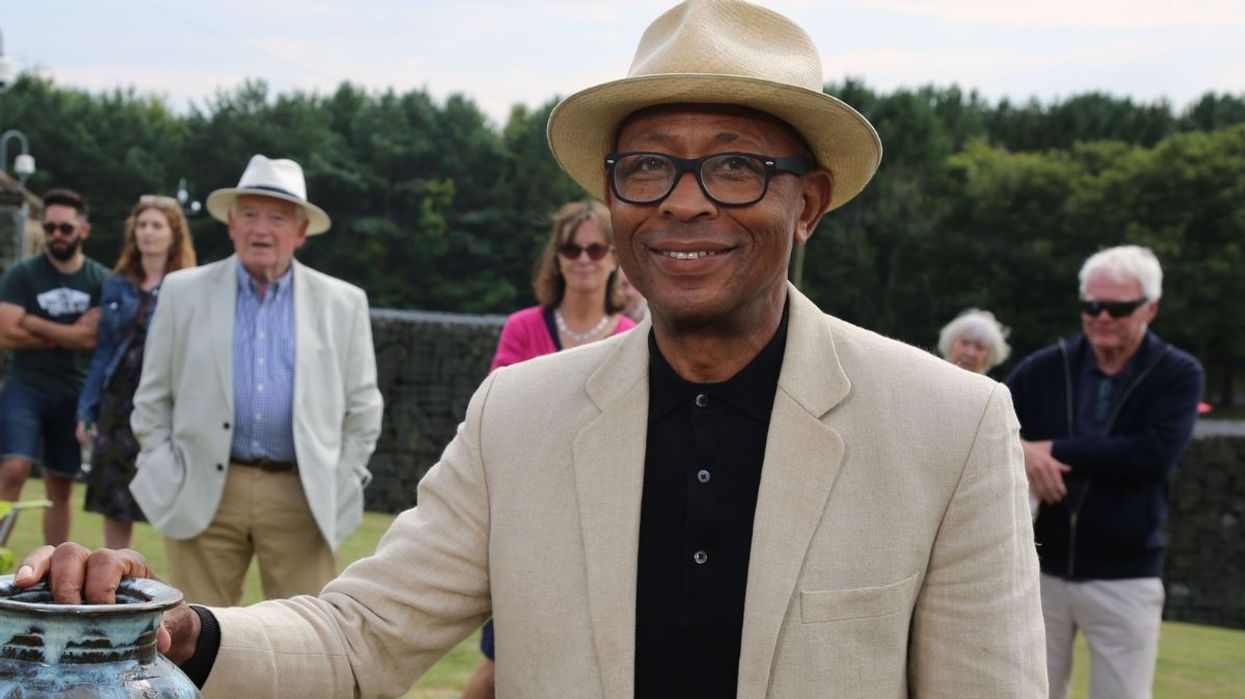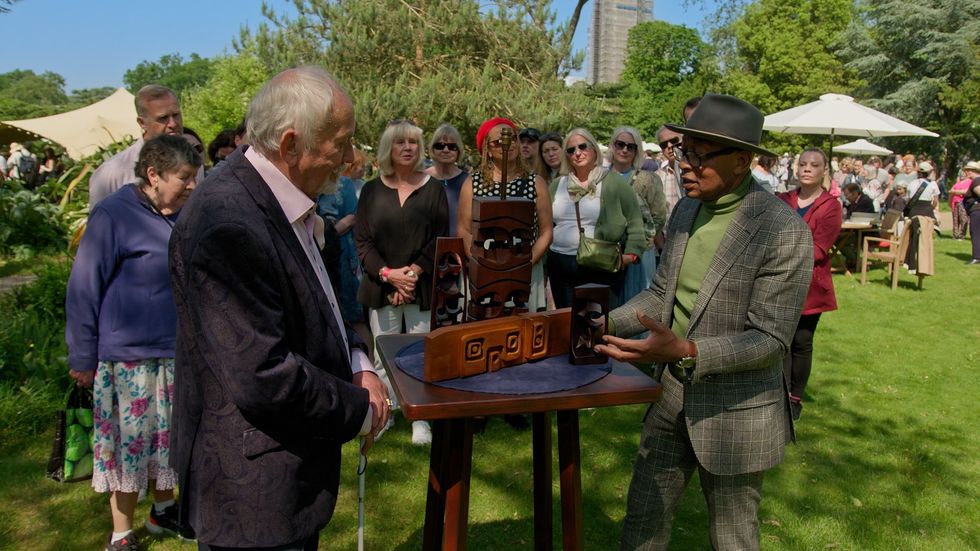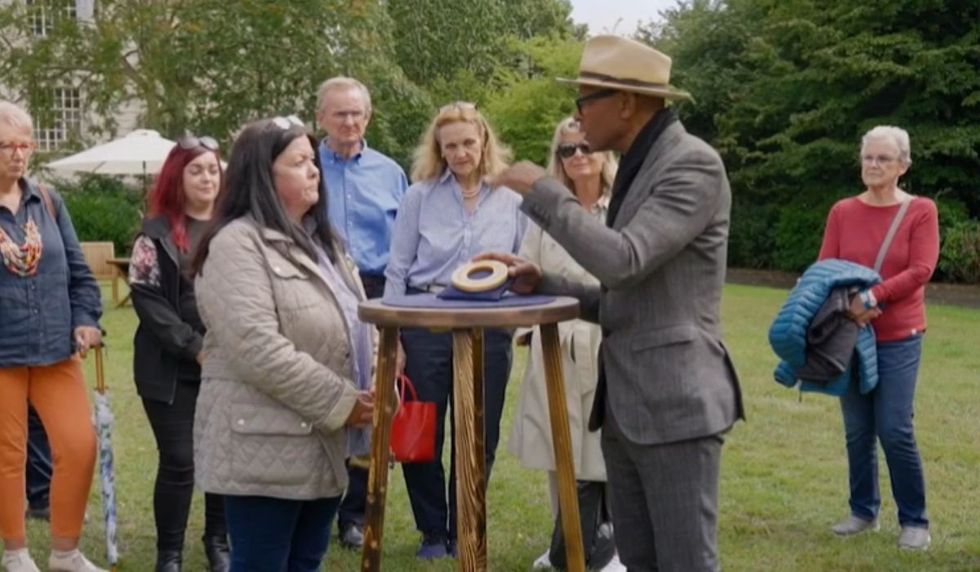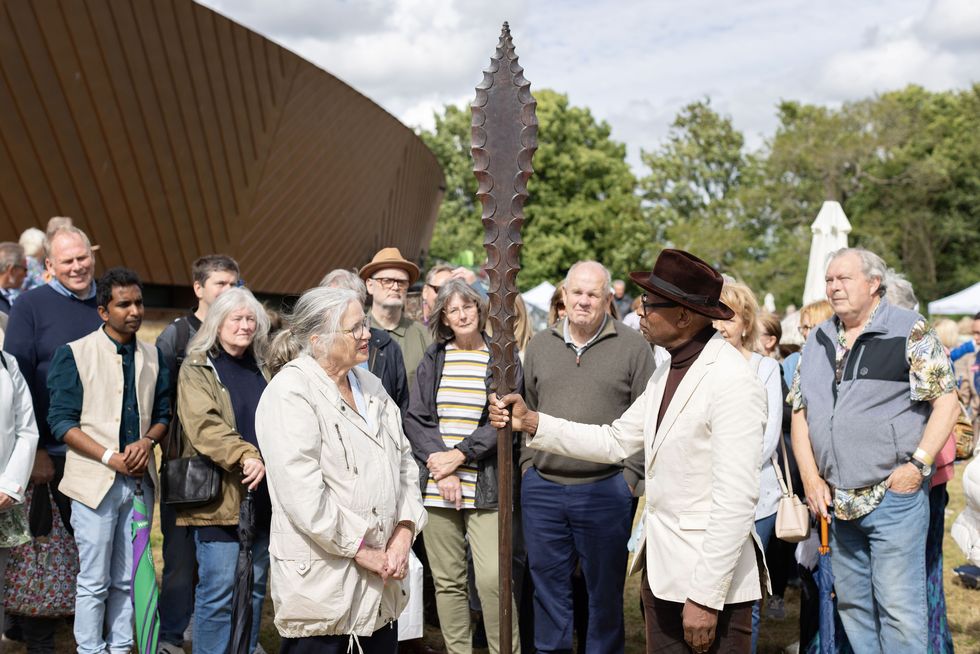BBC Antiques Roadshow expert defends refusal to value controversial items: 'You mustn't!'

Antiques Roadshow star Ronnie Archer-Morgan spoke exclusively to GB News
|BBC

Ronnie Archer-Morgan spoke to GB News all about his time lending his expertise to the BBC show
Don't Miss
Most Read
Latest
BBC's Antiques Roadshow has been on screens for decades, having first aired in 1979. Since then, historic items representing stories from around the globe have been seen on the beloved programme.
Expert Ronnie Archer-Morgan, 73, has shared his knowledge and wisdom on the show since 2011 and has worked in the antiques business for decades. Speaking exclusively to GB News, he addressed how he sometimes refuses to put a valuation on controversial items.
Earlier this year, an episode of the BBC favourite saw Archer-Morgan refusing to value an ancient ivory bangle.
"I want to make it absolutely clear that myself and we in the Antiques Roadshow wholly and unequivocally disapprove of the trade in ivory," the presenter explained during the episode.
He delved into the history of the item but refused to put a price on it, explaining: "I don't want to value it. I don't want to put a price on something that signifies such an awful business."
It's not the first time experts have avoided slapping a monetary sum on an item but Archer Morgan's decision sparked a debate among viewers.

Ronnie Archer-Morgan has starred in BBC's antiques Roadshow since 2011
|BBC
Speaking to GB News, the antiques expert defended his decision not to value such items.
"It happens a lot, with medals - we have to be very careful about it," he recalled. "We shouldn't put a monetary value on people's loss of liberty.
"If something came out of a concentration camp or a grant to - I don't know, commit genocide - was found, a letter giving someone the authority to cause people's death, you mustn't put a price on that.
"Even people's bravery in a way - when people have made sacrifices - this was a warrant for someone to deal in human life."

Antiques Roadshow star Ronnie Archer-Morgan once refused to value an ivory bangle
|BBC
Archer-Morgan spoke to GB News after joining an Action For Children campaign to support children in care.
The campaign is close to Archer-Morgan's heart as he was placed in the charity's care as a child.
"I was in care shortly after the war - all the carers really cared - it was a calling for them," he reflected.
As part of the campaign, Action for Children released a new report called A Place to Call Home, which reveals that 91 percent of adults with care experience in the UK said that they felt lonely and isolated during their time as a child in care – and nearly one in five felt like this all the time.
With more than 83,000 children in care in England, the charity is calling on the new government to take steps to create new, high-quality homes and boost recruitment and support for carers.
Thankfully, Archer-Morgan had a positive experience in care. He added: "Growing up in care saved my life. I wouldn't be where I am today without the warmth and love from the home that took me in and nurtured me.
LATEST DEVELOPMENTS

Ronnie Archer-Morgan talked about the issue with valuing controversial items
|BBC
"I want that for every child in care – this is why I’m here today, campaigning for change because every child, regardless of the lottery of life, deserves to have a safe and happy childhood."
Paul Carberry, chief executive at Action for Children, said: "Every child deserves a safe, loving and supportive home. That security gives them the foundations they need to thrive, both in childhood and later life.
"For children in care, the majority of whom have been through the very toughest challenges, this high-quality support is essential to help them recover from trauma. That's what we strive to provide in the homes we run.
"But we know that too often for children in care, that isn't happening. We still hear regularly from children who have had poor, or even dire, experiences in care.
"There simply aren't enough of the right types of homes for children in care in the right parts of the country, that can meet the needs of those children.
"We need more, high-quality homes – in both foster and residential care – and a focus on recruiting and keeping brilliant carers that are well trained and properly supported to provide the care that children deserve."










